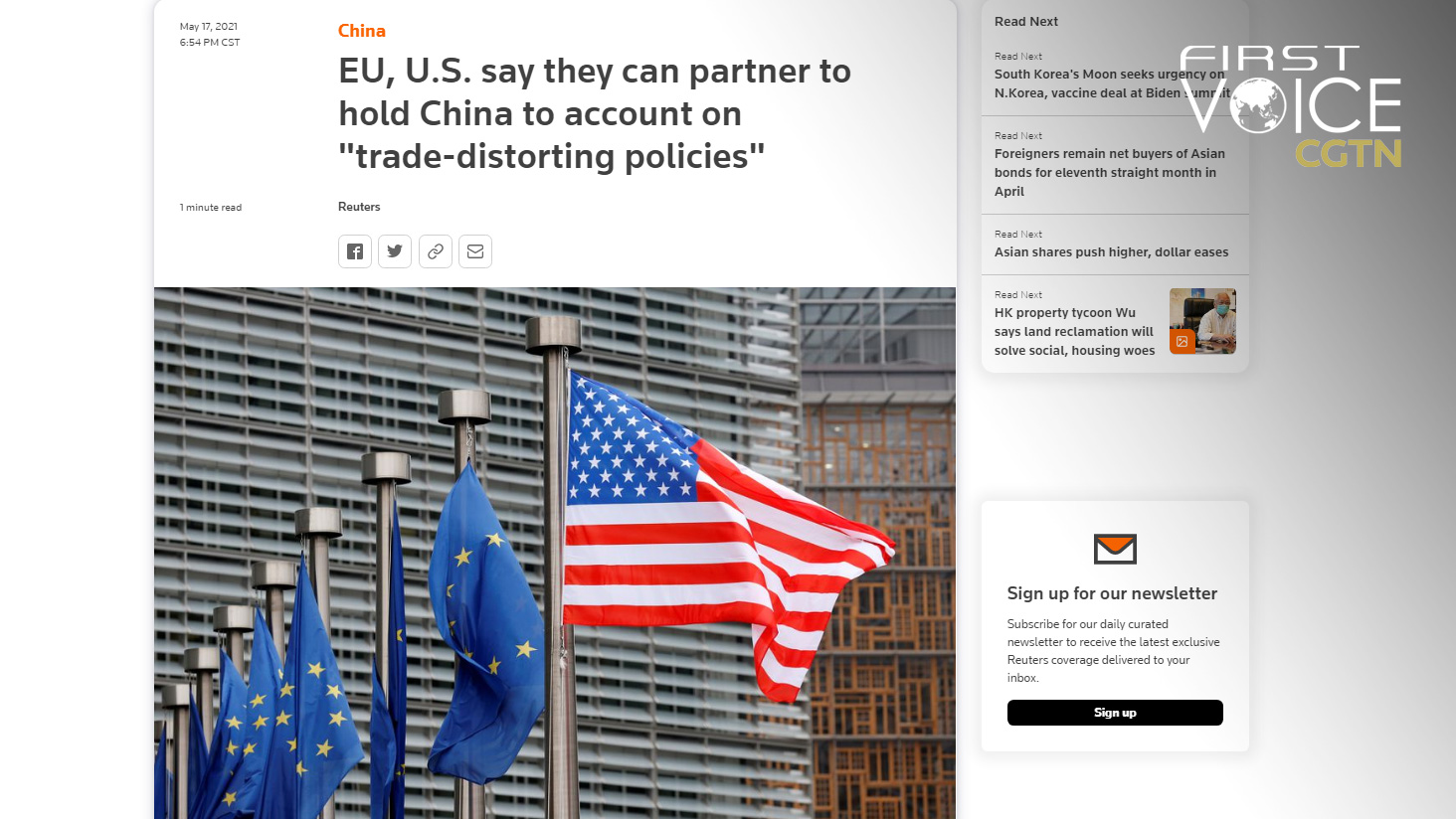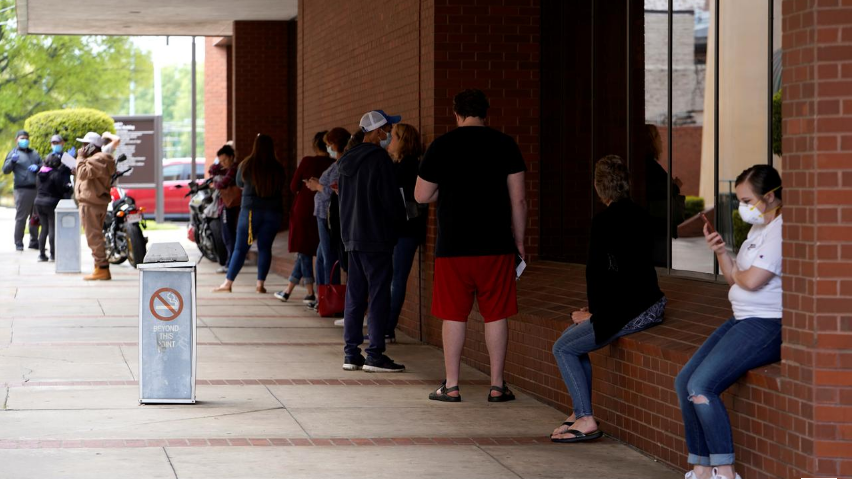
Editor's note: CGTN's First Voice provides instant commentary on breaking stories. The daily column clarifies emerging issues and better defines the news agenda, offering a Chinese perspective on the latest global events.
The EU and the U.S., struggling to find a way out of their mutually destructive trade war that President Joe Biden inherited from his predecessor, have both promised to get tough on China over what they call "trade-distorting practices."
This bit of political misdirection will offer the U.S. a fig leaf as it retreats from a disastrous policy that was meant to protect the jobs of American steelworkers and boost the U.S. economy but ended up doing the opposite.
This might give Biden some domestic political cover, but it isn't fooling anyone in the global community, which is still reeling from Trump's America First trade wars.
In 2018, Trump imposed tariffs on steel and aluminum imports, including from America's closest allies, on the pretext of "national security."
This was a prime example of a trade-distorting practice. The results are a textbook example of the benefits of global trade and how everyone loses in a trade war.
After the tariffs were imposed, steel prices soared in the United States. Thousands of steelworkers lost their jobs as demand for steel dropped. The value of U.S. steel stocks nosedived. According to an analysis by Lydia Cox of Harvard University and Kadee Russ of the University of California, Davis, Trump's steel and aluminum tariffs caused at least 75,000 job losses in metal-using industries by the end of 2019, with Trump's overall trade war killing 175,000 American manufacturing jobs.
That's not the end of the story. The nations that the U.S. slapped tariffs on retaliated in kind.

People who lost their jobs wait in line to file for unemployment at an Arkansas Workforce Center in Fort Smith, Arkansas, U.S. April 6, 2020. /Reuters
People who lost their jobs wait in line to file for unemployment at an Arkansas Workforce Center in Fort Smith, Arkansas, U.S. April 6, 2020. /Reuters
The recent meeting by U.S. and EU trade negotiators grabbed headlines for the two sides' joint statement about partnering to "hold countries like China that support trade-distorting policies to account."
But that wasn't the main story stemming from the meeting. The real news is that Europe backed down from a threat to double tariffs on U.S. goods, and the U.S. committed to backing off from the steel and aluminum tariffs by the end of 2021.
The Biden administration does not want to put a spotlight on its moves to wind down steel and aluminum tariffs. Right now in the U.S., the mood of the general public is very much against international trade deals and globalization in general.
The Republicans, once staunch free traders, have been converted to Trump-fueled protectionism. Democrats have traditionally been pro-union and suspicious of trade deals, fearing they send jobs overseas.
Americans react to the issue of globalization on a gut level. Attempts to explain that Trump's tariffs actually hurt workers will mostly fall on deaf ears on both parts of the political spectrum.
Americans have been told China is stealing their jobs so many times that they believe it must be true, even though analysis after analysis shows both countries benefit from trade.
Americans have been ripped off by globalization, but not in the way they think. Globalization has made America much richer, but the benefits have flowed into the pockets of the wealthiest, leaving workers behind. This is not because of Europe, China, Canada or Mexico, but because of U.S. domestic policy.
When Biden finally does remove the tariffs on Europe, his political opponents will try to weaponize this action and declare Biden is betraying American workers.
This helps explain why China is being invoked in a bilateral trade dispute that actually has nothing to do with China.
It is ironic to hear the U.S. complaining about trade-distorting policies when many of Trump's tariffs are still in place.
The World Trade Organization (WTO) has ruled Trump's tariffs on China were illegal. Nonetheless, the Biden administration has not withdrawn them. Indeed, in the current political environment in the U.S., it will be hard for him to do so without looking "soft on China."
The issue of overproduction in the global steel industry is complex. The WTO is the proper forum to deal with it. In fact, China recently accepted a defeat in a case lodged against it by Europe about how to measure the value of steel in dumping cases. This is an example of how the give and take of multilateralism is supposed to work.
China is happy to discuss trade "distortions" with the U.S. anytime, both through bilateral negotiations or through the WTO.
Unfortunately, at the same time the U.S. launched trade wars against its allies and China, Washington also blocked the WTO's ability to resolve trade disputes. The Biden administration, despite its moves toward multilateralism, has not moved to better the situation.
China welcomes the U.S.' gradual return to multilateralism. But it is the U.S., not China, that needs to end trade-distorting practices as it returns to the global community.
(If you want to contribute and have specific expertise, please contact us at opinions@cgtn.com.)

